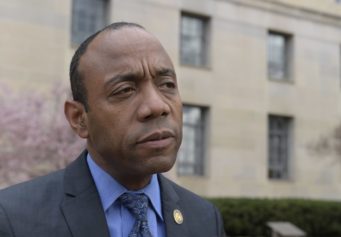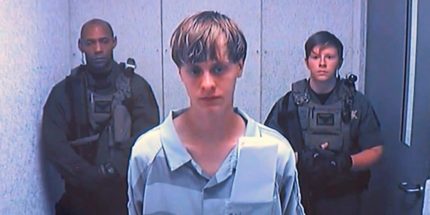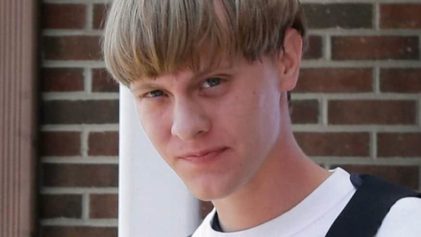Despite the organization being firmly against the death penalty, NAACP President and CEO Cornell William Brooks said on the Jan. 5 broadcast of “Democracy Now” that he supports the prosecution and punishment Charleston church shooter Dylann Roof may receive for killing nine parishioners.
“The murderer, … one person I refer to as a racial terrorist, referred to the taking of lives in such a cavalier, callous and inhumane fashion and showed absolutely no remorse,” Brooks says. “The NAACP stands unapologetically against the death penalty, we do so as a matter of principle. That being said, we support the prosecution and the punishment to the fullest and the firmest extent of the law for someone who has engaged in what we called a hate crime from the very beginning.”
This week, Roof revealed that he had no regrets about killing nine parishioners during Bible study. While defending himself in court Wednesday, Jan. 4, the 22-year-old shooter dismissed his attorneys’ attempt to bring up his mental state and assured the jury that “there is nothing wrong with me psychologically.”
Brooks grew up in and around Charleston, South Carolina, and the June 2015 attack touched him personally because he is an A.M.E minister and was very familiar with the congregation.
Thinking about those who died made Brooks ponder that “while there’s a climate of caring in the country, there’s also an environment of hate.”
The NAACP head fears that other white supremacist factions and individuals will become emboldened because of Roof’s nonchalant demeanor.
“We’re also concerned about the racial animus, the sanitized, homogenized, alt-right atmosphere in the country that is giving rise to this kind of sentiment and driving violent crimes,” Brooks explains. “As chilling and as concerning and as alarming as the sentencing phase of the trial of Dylann Roof is, we should be chilled and concerned and alarmed about the state of America. … The
“The NAACP is standing in firm opposition to both the atmosphere that gave rise to Dylann Roof’s crimes, even as we call for his prosecution and punishment.”


